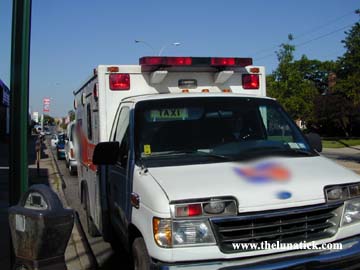Perhaps you misunderstood my comment.
no i don't think i did Firechic
while i value education as the crucial element of validating any profession, i also live in the real world
90% of ems calls are a taxi ride, it's the other 10% where we actually make a difference
there is no need for higher levels of intervention for much of what we do, however it would be a good start to
educate the public to the value of paramedic intercept for that 10% (actually they get called in more, but turned around)
that would be a worthy and realistic goal for ems, and quite likely a good stepping stone toward what posters in this thread desire
the evolution of ems is going to take time, public awareness would need to be key imho
to legislate overnight requirements would be leaving the system shorthanded, and the brownshoes who have been juggling ciricculums in the recent past have produced just this result
just look at what they've done to the I level. they obviously haven't had every state on the same page either, have they? individual states are cherrypicking what they'd like, and it's not working too well for us
if ems wishes to progress, WE need to take it back to make these desicions collectively under a realistic orginization that seeks realistic goals
~S~

